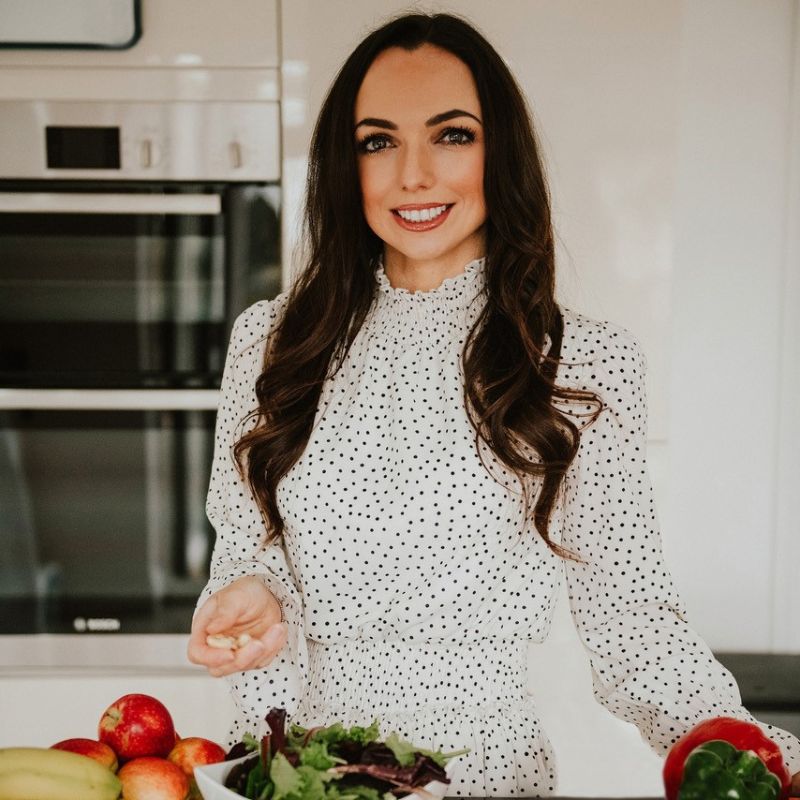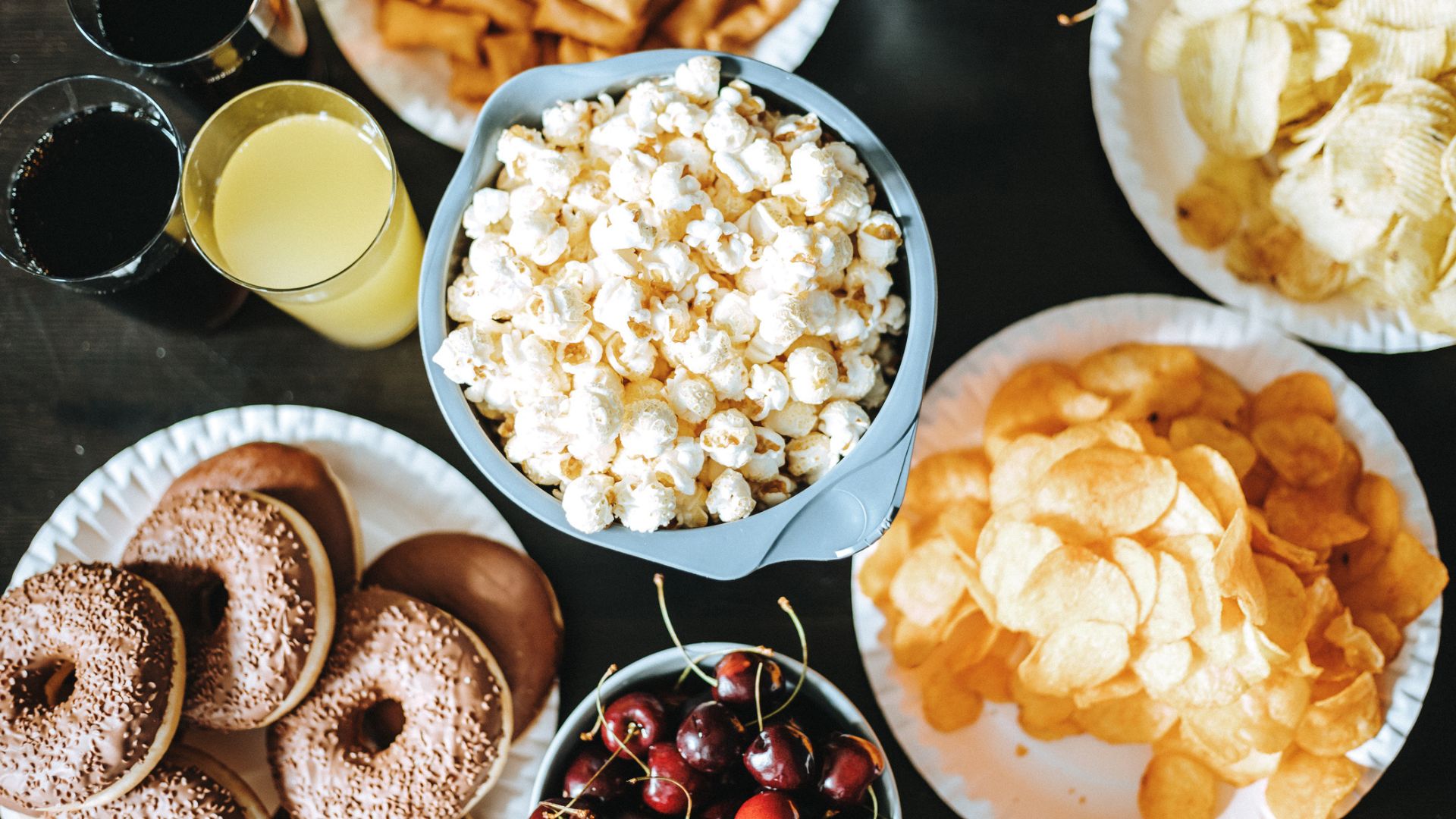What are ultra-processed foods - and are they really that bad for you?
The word is everywhere right now but we asked the experts what it really means - and whether ultra-processed foods really deserve their bad name


It’s highly likely, especially if you’ve grabbed a meal deal for lunch, that you’ve eaten a UPF (ultra-processed food) today - and if you've been reading the news over the past year, you've probably heard all about them. From news stories claiming that one in seven of us is "addicted" to millions of #UPF videos on social media, the topic is everywhere.
If you’re not familiar with them already, a UPF is a food that has been "ultra-processed". Most UPFs have been made in a factory and/or have had multiple sugars or additives added to make them taste better or help preserve them. Crisps, fizzy drinks, mass-produced bread and even some flavoured yoghurts are all examples of the UPFs many of us eat every day.
As we start tracking our health more extensively with advanced fitness trackers and sensors, it’s only natural that the next step is taking a (much) closer look at our diets. But when it comes to our daily diets and practical eating, are UPFs really that bad? We asked the experts.
What are ultra-processed foods?
Ultra-processed foods are created in factories and contain multiple ingredients, including those not usually found in a typical kitchen, says Nichola Ludlam-Raine, a dietitian and the author of How Not to Eat Ultra-Processed. "You can't create a UPF at home. For example, they contain emulsifiers, preservatives, artificial flavourings and colours," she explains.
So, how can we clarify exactly what a UPF is and isn’t? Rachel Butcher, the head of nutrition at Third Space London, explains that the NOVA Food Classification System is a good place to start as it: “categorises different levels of food processing to help group foods according to the extent of processing they undergo. This scale goes from non-processed (beans, eggs, rice) to processed foods (canned meats, bacon, cheese) to ultra-processed foods (ice cream, biscuits, cakes, sweets, chocolate, etc)," she says.
The system was developed by Professor Carlos Monteiro, who also coined the term 'ultra-processed food', after rates of obesity in Brazil continued to rise, even though people ate and drank less sugar. He believed that health is dependent on the nutritional content of the food and drinks we consume - but also on the processes used to make it in the first place.

Nichola is a specialist registered dietitian with 15 years of clinical experience working for the NHS as well as privately. She has a 1st class BSc honours in Sport & Exercise Science from Loughborough University, a Post Graduate Diploma in Dietetics from Leeds, an MSc in Health Science and she is a published author in the Journal of Human Nutrition & Dietetics. Nichola has also obtained a diploma in Diabetes Management in Primary Care as well as certificate in Personal Training, with pre and postnatal specialism. She also currently works with Ramsay Healthcare.
Rachel Butcher is a registered nutritionist specialising in performance nutrition, metabolism, and sustainable fat loss. She has a passion for nutrition, food, fitness, and health, and works to help people achieve a sustainable relationship with food and their body through education, accountability and developing a healthy habit system. She is also the head of nutrition at Third Space London.
Is ultra-processed food bad for you?
It's not quite as simple as that but if you're eating a diet full of ultra-processed foods, you'll experience some negative side effects. For starters, you'll be constantly hungry as UPFs contain ingredients that increase levels of ghrelin - the hormone that triggers hunger - and lower levels of peptide YY - the hormone that makes us feel full - in the body. It also acts similarly to alcohol and nicotine by triggering the brain's reward centres, setting off hunger cravings.
Sign up to our free daily email for the latest royal and entertainment news, interesting opinion, expert advice on styling and beauty trends, and no-nonsense guides to the health and wellness questions you want answered.
You also may be prone to more diseases. “In large amounts, they have been linked to increased risk of chronic diseases, like heart disease, diabetes, obesity, even mortality, but these are in people who were following diets which consisted of 80% ultra-processed foods or more,” explains Ludlam-Raine.
However, despite plenty of research that links UPFs to serious health issues, there's only evidence to suggest a link between them - rather than a cause and effect. For example, a study published in the British Medical Journal earlier this year found exposure to UPFs was linked to "32 health parameters spanning mortality, cancer, and mental, respiratory, cardiovascular, gastrointestinal, and metabolic health outcomes", adding that "greater exposure to ultra-processed food was associated with a higher risk of adverse health outcomes".
There's also emerging evidence that ultra-processed foods sit among the worst foods for gut health. "It's thought that the lack of dietary fibre and high levels of artificial ingredients may contribute to the disruption of the gut microbiome," says nutritionist Caroline Hanna.
Caroline Hanna is a registered Nutritional Therapist on a mission to help women take control of their health sustainably by finding a unique balance, one that feels good in body and soul. After studying English Literature at university, she attended Le Cordon Bleu in London to study Gastronomy & Nutrition and learnt all about what (and what does not) make good food.
Can you eat ultra-processed foods in moderation?
So, does that mean we have to cut all UPFs out of our diet? Thankfully not - like any diet, moderation is the key. Ludlam-Raine suggests we should opt for the 80/20 rule. “If your diet is 80% healthy whole foods then the other 20% can include exactly what you want - including UPFs. I still eat both nutritious and less nutritious UPFs in my diet - guilt-free, because I know they don't make up the majority of my diet," she says.
Also, UPFs may fill a particular gap in your diet. Ludlam-Raine uses fish fingers as an example, explaining that although they are processed to an extent, she’ll always have them in the freezer for her kids since "they’re not going to eat salmon, so getting them to eat some form of fish is good - they’re a healthy UPS because of the fish."
Hanna agrees. "We live in a world where it’s difficult to avoid UPFs altogether," she says, so the best approach is one of balance. “The healthiest diets are those high in real, whole foods (such as fruit, vegetables, legumes, nuts, seeds, fish and eggs), so if you’re prioritising those things in your diet, the odd bit of ultra-processed food isn’t something to worry about. Focus on building healthy dietary habits, and don’t sweat the small stuff."
How can you tell if a food is ultra-processed?
Some UPFs are easy to identify, while others can be a little tougher. One way to identify them is by reading food labels: “Taking the time to read the ingredients lists on foods can help you understand what a UPF is and what isn’t,’” says Hanna. “Many ‘healthy’ options are actually ultra-processed foods, for example, foods like cereal bars, ‘baked’ potato crisps, jarred sauces and breakfast cereals.”
Meals cooked from scratch at home are most likely to be free from ultra-processed foods and ingredients.

There's no need to cut out all UPFs from your diet, provided you eat them in moderation, the experts say.
List of ultra-processed foods
- Fizzy drinks
- Ice cream
- Ham
- Sausages
- Mass-produced bread
- Pre-made and packaged cookies, chocolate bars and biscuits
- Pastries
- Energy drinks
- Most pre-made and packaged granola bars
- Pre-made and packaged fried foods
- Ready meals
- Instant sauces
- Instant soups
- Fruit-flavoured yoghurts
- Margarine
- Crisps
- Some breakfast cereals, especially those that have been sweetened
- Pre-made and packaged coffee drinks
- Alcoholic spirits, including vodka, rum, whisky and gin
How to avoid ultra-processed foods in the UK
- Cook at home: This is the best way forward - but, we get it, not all of us have the time and energy to make meals from scratch every day, and Hanna says that it doesn’t be too time-consuming: “Batch-cook recipes are a great time-saver for when you’re busy midweek, as are things like tray bakes and one-pot meals.”
- Make small swaps: “Opt for butter instead of margarine, olive oil and lemon juice instead of bottled salad dressings, plain Greek yoghurt instead of flavoured yoghurt, and stock up on herbs and spices instead of using packet flavourings," she says.
- Check your food labels: Foods with ultra-processed ingredients are likely to have high amounts of sugar, salt, and saturated fat, along with ingredients you certainly won't have at home - such as preservatives, sweeteners, and emulsifiers.
- Watch out for snacks: Snacks to avoid when hunger strikes include those containing UPFs. Opt for naturally-produced snacks between meals, such as nuts, seeds, and whole fruits instead.
- Opt for shorter ingredient lists: If you struggle to avoid UPFs, Ludlam-Raine explains there is always a choice“If you've got a few different ultra-processed foods, can you go for the healthier, ones? They will have a shorter ingredients list. They will have fewer additives. They might only have one type of additive, like a preservative.”
Sarah is a freelance journalist - writing about the royals and celebrities for Woman & Home, fitness and beauty for the Evening Standard and how the world of work has changed due to the pandemic for the BBC.
She also covers a variety of other subjects and loves interviewing leaders and innovators in the beauty, travel and wellness worlds for numerous UK and overseas publications.
As a journalist, she has written thousands of profile pieces - interviewing CEOs, real-life case studies and celebrities - interviewing everyone from Emma Bunton to the founder of Headspace.
